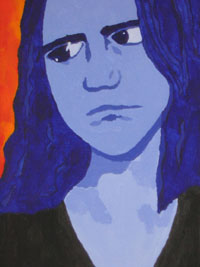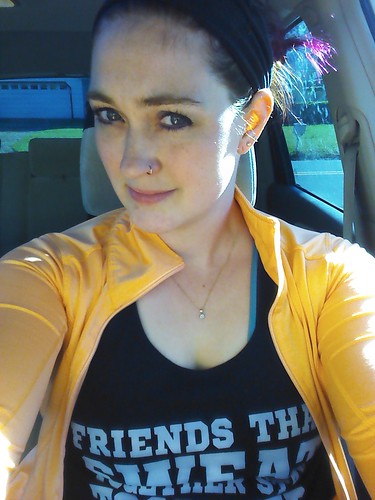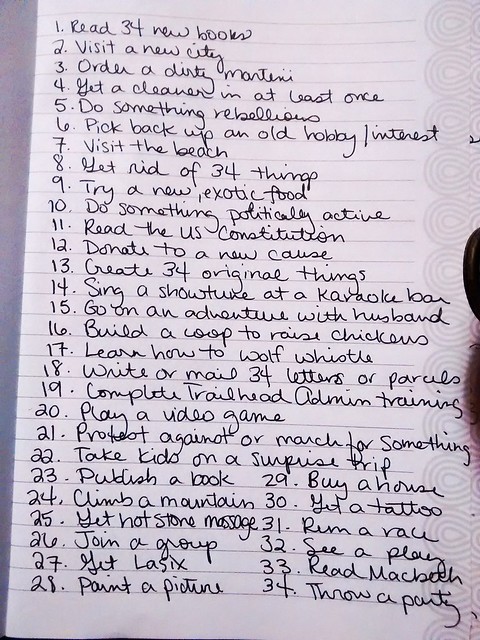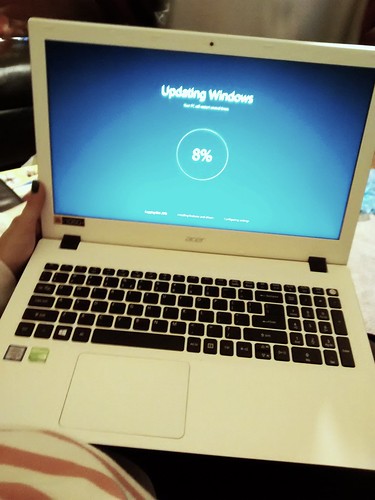Why do you think that being an atheist has become such a big part of your self identity?I think this is a really valid question, one I'm especially interested in writing about. This is something I've thought long and hard on for almost two years, so I'll give these two main reasons.
1. Because my identity HAS completely changed. "My identity is in Christ." How many times have we evangelicals heard or used this phrase? For me, I used it all the time. My significance was found in Christ. My identity was in Christ. My purpose and reason for being was Christ. My whole life, especially my adult life, was centered around Christ. If I ever felt that something else was taking that place, I repented, ashamed. I was nowhere near perfect, I counted myself as one of the worst, most unworthy people to call myself a Christian, but I longed to be like Christ in all I did and all I was. I truly wanted my identity to be in him. I wanted the world to know that I was a follower of Jesus. I normally made it known very early on in a new friendship with someone that I was a Christian. I wanted to shine my light everywhere I went.
I was never asked why my faith was such a big part of my identity.
I'm not making that point to criticize the question; it is a really great, thoughtful, important question. But there is an element in the question that implies it shouldn't be. Atheism shouldn't be that important to me, even though faith absolutely can and should be.
So why has being an atheist become such a big part of my identity? Because it literally altered my entire identity. One thing as small as believing in a god or not quite literally altered my entire sense of self.
That Christian label that I'd worn for as long as I could remember was ripped off. And it left behind almost nothing. Without my faith, I didn't know who I was or who I could even be anymore. Would I become a selfish, terrible, mean, unkind person without God? What am I, if not a follower of Christ? What is left of me worth salvaging if I don't have my faith anymore? It wasn't until I had a moment of clarity, when I realized that I didn't have to believe in a god to be the same person I always was, that I started to rediscover myself. I realized that I still was and always had been and always could be a good person. I hadn't been the worthless, sinful, depraved person I'd believed myself to be my whole life; that was what religion had taught me. Religion had taught me I was a sinner in need of a savior; atheism taught me that I have worth, that I create my own destiny, that I am a good person because I choose to be, not because a deity saved me from my evil instincts. "Luckily I held out long enough to see that everybody really makes their own destiny. It's a beautiful thing, it's just you and me, exactly where we belong, and there's nothing inherently wrong with us." (Quite Company)
*I fully realize that every Christian reading that will think that is a tragically arrogant, "deceived", lie-of-the-devil, heart-breaking thing to say, and no amount of arguing will convince them otherwise. I just have to accept that is what they/you will think. I thought it once too. I know.
I could no longer go around with a lingering Christian label. It wasn't enough to just rip the label off. It had to be replaced with something new. My identity had fundamentally changed. That's a big deal.
2. Because the stigma needs to end. When I finally admitted to myself I no longer believed in God, I was uncomfortable with the term "atheist". It had always been a very negative word to me, one I acquainted with loudmouth, obnoxious jerks who just want to make religious people feel stupid all the time. I tried labeling myself something less offensive: agnostic, humanist, non-religious. But really, atheist pretty much summed it up.
As I began meeting other atheists and started experiencing life as an atheist in a very Christian society, I began to realize just how toxic the stigma on atheists is. We are the least trusted group in America. A Gallup poll showed that more Americans would vote for a Muslim or a gay person for President than an atheist. Why? What is it about simply not believing in a religion that makes us so threatening and unlikable? All the atheists I was getting to know via a Facebook group for non-believing mothers were extremely kind, thoughtful, generous, and intelligent. So how is it that the term atheist inspires such disgust?
I decided to be one small but audible voice that would speak for atheists. We are not all disrespectful and militant. I'm aware that my embracing atheism makes many people uncomfortable. I'm not blind to that, and I do hate that it has to be that way. But does it have to be that way? Why should it make people uncomfortable? It shouldn't. If I converted to Catholicism or Mormonism, would my speaking about it cause them the same level of discomfort? Not anywhere near to the same degree. So my atheism has become a part of my identity in part to help end the stigma that comes with the word. I can be your token atheist friend, if that's what it takes. My generation having had that "token gay friend" is actually a huge reason why LGBT rights have come as far as they have in the past few years. Knowing someone personally is often what changes people's preconceived notions. Maybe the social tide can turn a little if everyone had a token atheist friend. In another generation, maybe just knowing a friendly atheist will bring an end to the stigma.
*I fully expect some people to think, "Well, you aren't that respectful - you sort of shove your atheism down our throats." To that I'd have to ask, "Really? Do I? Or do I just talk about atheism in the same very personal way you talk about your faith?" If simply talking about one's own faith is not shoving it down my throat, then my talking about my lack of faith is not shoving it down anyone else's. If posting Christian articles or praising God on Facebook or writing blogs about how Jesus has changed your life is acceptable, then so should anything else equally non-confrontational. I'd have to challenge the person who thinks I shove my atheism down their throat to recall a time when I've insulted anyone for their faith or tried to turn them into an atheist. (Conversely, I've had plenty of reconversion attempts made on me.) I'm just sayin'. If you don't like what I say, don't read it. I won't be offended, promise.
Final thought. I do sometimes feel uncomfortable with this "identity". I recognize it is not politically or professionally astute. I sometimes worry I could lose my job. I worry about my kids being bullied at school for not going to church and having atheist parents. There is a lot to lose to being an atheist here in the Bible Belt. Quite a staggering number of people have confided in me since my "coming out" that they are closet atheists, unafraid to tell their families, friends, or even spouses, that they do not believe. Somehow that makes it all the more important to me to keep speaking up. Maybe I'll lose my job (I hope not) or my friends or even some family members (I really hope not), but if it also results in a change of opinion or attitude in a some people, then maybe at least some good would come of it. The more of us willing to come out, the more people will accept us, because they will know us.







